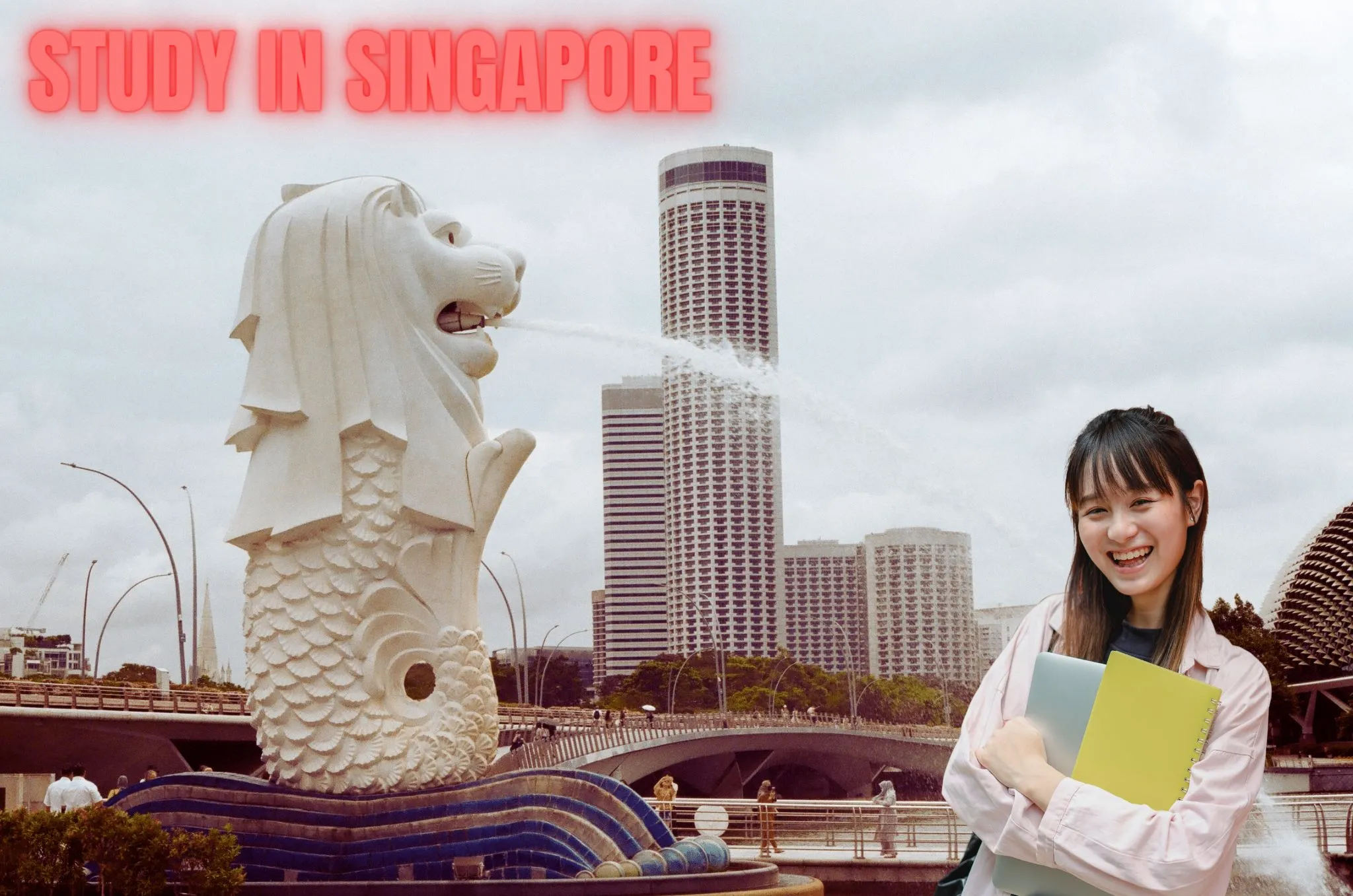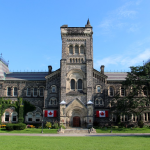A Guide to Studying in Singapore after Grade XII

Singapore has emerged as the hub of innovation and technology in South East Asia. The progress in infrastructure, economy, and education has provided this island nation with the right tools to create its own place in the world’s growth story. As a developed cosmopolitan nation with a high per capita income, Singapore is a preferred study destination for international students.
Over the last few years, Singapore’s best universities have consistently featured in the world’s top 50. Some private universities in Singapore have formed successful collaborations with other renowned international universities and attract international students for regular as well as pathway programs. Some prominent names include SUTD-Duke-NUS Medical School, Yale-NUS College of Liberal Arts, and LKC School of Medicine (a tie-up between NTU and Imperial College, London). In addition, some international universities have campuses in Singapore, which attract many international students annually. Examples include James Cook University, Curtin University, INSEAD, and UChicago Booth School of Business.
The overall cost for an undergraduate degree in Singapore is higher than that in the UK and Canada, but deserving international students can avail scholarships and government subsidies which can make studying in Singapore feasible.
So, let’s try to answer some of the most frequently asked questions about Singapore as a study destination after Grade XII.
1. What Are The Major Fields of Study?
Many international students prefer Singapore for courses in Engineering, Computer Science, and Business Studies. From the perspective of students looking for a long-term career move, it would be advisable to understand the performance of various industries and their contribution to Singapore’s economy. Manufacturing, for instance, is the most significant industry – contributing to almost a quarter of Singapore’s GDP. Software & AI, Banking & Finance, Construction & Engineering, and Law are other booming sectors in Singapore. Selecting courses that could lead such students directly to one of these industries will be a beneficial decision.
2. What Are The Top Universities in Singapore?
6 public and 14 private universities make up the list of most significant universities in Singapore. Among these, National University of Singapore (NUS), Nanyang Technological University (NTU), and Singapore Management University (SMU) are the top-ranked universities. They are renowned for the courses and facilities provided on their respective campuses. Many international students also choose James Cook University (JCU Singapore), Singapore University of Technology and Design (SUTD), and Singapore University of Social Sciences (SUSS).
3. When to start preparing?
The application process for undergraduate courses in Singapore is very competitive as the seats are limited. Students need to start preparing from Grade IX and ensure that they maintain a good academic record throughout their High School years. As students start making subject-related decisions starting at this grade, it becomes important to keep an eye on the minimum academic requirements for undergraduate courses in Singapore and choose high school subjects accordingly.
4. Which co-curricular activities are considered?
Most universities in Singapore consider academic performance as the basis of undergraduate admissions. However, top universities like NUS consider students’ extraordinary performance in co-curricular activities and competitions. Medals in International Olympiads, top national awards, participation in sports at the national level, or exceptional rank in top university entrance examinations like JEE Advanced are all considered. Outstanding work in a preferred study area can also help students distinguish their profiles. Among the best ways of doing this is writing research papers under the guidance of erudite professors. However, activities or achievements at intra-school, class, or house level do not usually have a strong bearing on the outcome of the application.
5. Which Standardized Test Scores are considered?
Universities in Singapore have different criteria for test scores. These depend on the medium of instruction during school years and the board that the school is affiliated with. The table below shows some requirements.
| Board | Test/Course | Required? (Yes/No) |
| Indian State Boards | IELTS/TOEFL | No (If the medium of instruction throughout school years has been English and the scores in English have been over 75%.) |
| SAT | Yes (NTU and NUS require a minimum score of 1250 for Indian State Board students.) | |
| AP Courses | Yes (Calculus BC and 2 other courses as preferred by the student) | |
| Central Boards (CBSE/ICSE) | IELTS/TOEFL | No |
| SAT | No | |
| AP Courses | No | |
| IB | IELTS/TOEFL | No |
| SAT | No | |
| AP Courses | No |
As mentioned above, these are general guidelines. Students need to be mindful of the requirements according to the course and the university they are applying to. For example, SAT score is required by NUS and NTU if the student has appeared for State Board exams. SMU may require students to submit SAT or TOEFL/IELTS scores irrespective of their boards. Students should note that even though the score requirements are optional, every university’s application portal has a space to enter these scores. Excellent scores on these tests can improve the chances of admission.
6. Which essays are required?
The requirements for essays in the application process vary from one university to the other. Some universities in Singapore might ask for only one essay, some multiple, and some none. Here are some requirements for top universities:
| University | Statement of Purpose (SOP) | Letter(s) of Recommendation (LOR) | Additional Essays (University Specific) |
| Nanyang Technological University (NTU) | Not Required | Not Required | Not Applicable |
| National University of Singapore (NUS) | Required (300 words) | Not Required | Not Applicable |
| Singapore Management University (SMU) | Required (300 words) | Not Required | 2 or 3 Essays (depending on the course) 50 words each |
| Singapore University of Technology and Design (SUTD) | Not Required | Required (Either the principal or math/science teacher) | 5 Essays (100 words each) |
When it comes to the SOPs for NUS and SMU, students need to draft unique essays for both. A generic SOP might not help the students secure an admit in either of these. The SOP should clearly highlight the reasons behind choosing a specific university or an area of study. It should show the admissions committee how the applicant developed an interest in a particular field of study and how he/she has nurtured and strengthened it further. Students must research their target university thoroughly so that they can write a suitable SOP.
The LOR required by SUTD must be written by either the principal of the school or the science/math teacher. Therefore, it is important for students to maintain a good rapport with them right through their high school years. The LOR should mainly contain the behavioral observations of the applicant. It should refer to students’ academic and co-curricular performance and any awards/achievements at the national or international level. The students must also furnish the following details of their referee: Full Name, Designation, Email ID, and Contact Number. The university often contacts the referee further.
7. Are there any scholarship opportunities?
Deserving international students can apply for both merit-based and need-based scholarship schemes in Singapore. Many universities consider students for these scholarships automatically at the time of application. However, there are some exceptions. The NTU, for example, has a separate scholarship application form. This form can be accessed only after successfully applying to a course at the NTU. It requires students to mention their top 5 achievements, write a 300-word essay, and upload one LOR. The university often conducts an interview before giving the verdict on applications.
Apart from this, the Ministry of Education, Singapore (MOE) provides tuition grants (TG) which can cover a substantial amount of tuition fees. International students with a TG become eligible for Financial Aid and pay only a subsidized fee. Each university has its own Financial Aid application and only the students who have accepted the TG agreement with MOE can apply. Moreover, there are schemes for Tuition Fee Loans, Study Loans, Bursaries, and Hostel Loans offered by the universities or external organizations.
8. How to apply?
Universities in Singapore do not have a unified application portal, but the MOE has developed a comprehensive Course Finder for students. It is recommended that the students shortlist their courses/universities here so that they have a complete understanding of the application requirements, the scope of the courses they have chosen, the specializations offered, and the career prospects. Students need to apply to the relevant universities from their respective websites, and the links for the application pages are included in the Course Finder.
9. What are the intakes and application deadlines?
Public universities in Singapore usually offer two intakes in a year: February and August. Private universities, however, may offer up to six intakes: January, February, July, August, September, and October. The table below lists some examples of these.
| University | Intake | Application Commence Date | Application Closing Date | Estimated Date of Application Outcome |
| NUS | Jan | Mid-March | July End | Mid-September to October End |
| Aug | Mid-October | Mid-March | Mid-May to July End | |
| NTU | Jan | Mid-March | Mid-June | September End to Early October |
| Aug | Mid-October | Mid-January | April End to Early May | |
| SMU | Jan | Mid-April | Mid-July | October to December |
| Aug | Mid-October | Mid-January | May to July | |
| SUTD | Sept | Mid-November | Mid-February | May End to Early June |
| JCU Singapore | Mar, July, Nov | All time | 1 month before the course start date | 1 month before the course start date |
| Curtin Singapore | Feb, July, Nov | All time | 1 month before the course start date | 1 month before the course start date |
10. What are the visa formalities for international students?
Singapore’s student visa is known as the Student’s Pass and the recognized educational institutes are known as Institutes of Higher Learning (IHL). International students aspiring to pursue courses in the IHLs need to apply for the Student’s Pass through a separate portal called SOLAR – Student’s Pass Online Application & Registration. The applications are processed directly by the Singapore Immigration and Checkpoint Authority (ICA). Students can apply for the Student’s Pass once they have received a formal, written invitation from an IHL. Usually, the Student’s Pass applications are processed swiftly by the ICA – sometimes students may receive their visas as early as 15 days from the date of application. Universities recommend students apply for visas at least a month prior to (but not more than two months before) the date of commencement of studies. The minimum requirements for a Student’s Pass application are mentioned below:
- Valid passport (should be valid for at least 3 months beyond your period of stay)
- Recent passport-sized photograph (colored)
- Letter of acceptance from an IHL
- Printed copies of eForm 16 and Form V36 (from SOLAR)
- Comprehensive Study Plan (signed)
- Medical Certificate (consistent with the ICA format)
- Proof of funds
- Standardized Test Scores (if required)
- English Proficiency Test Scores (if required)
- Application Fee (as applicable)
11. What employment opportunities are available after graduation?
International students can use a portal called MySkillsFuture to understand the scope of their chosen fields in Singapore. This has been integrated into the Course Finder, making it easier to contemplate the desired roles/professions for the future. International students may find it difficult to apply to full-time jobs after completing their undergraduate degrees as the job market is quite competitive. There are several government policies that may prevent international graduates from applying to certain jobs. Engineering/IT graduates from top universities like NUS and NTU may find it easier to get employment as compared to graduates from other fields and universities. Therefore, it is important to research the relevant industries and government policies before making long-term plans.
12. Can students apply for Permanent Residency?
International students graduating from Singapore are generally eligible for a Short-term Visit Pass. This is valid for 90 days and allows the students to “search” for jobs. Students cannot start jobs with the Short-Term Visit Pass. However, graduating from one of the IHLs provides international students with the advantage of applying for the Long-Term Visit Pass (LTVP). International students with an LTVP can stay and work in Singapore. The table below shows some other long-term visa options available to international students.
| Type of Visa | Conditions | Duration | Renewable | Sponsorship Needed | Dependents Allowed |
| Long-term Visit Pass | Graduates from IHLs | 1 year | No | No | No |
| Employment Pass | Minimum salary of S$4,500 per month | 2-3 years | Yes | Yes | Yes (Minimum salary criterion of S$6,000 per month) |
| S Pass | Minimum salary of S$2,500 per month | 2-3 years | Yes | Yes | Yes (Minimum salary criterion of S$6,000 per month) |
| EntrePass | Registered with ACRA* | 1-2 years | Yes | No | Yes (Minimum annual business spending must be S$100,000) |
*ACRA is Accounting and Corporate Regulatory Authority, Singapore. Besides registering with ACRA, EntrePass requires the applicant to fulfill other criteria related to funding, period of operation in Singapore, etc.
Students need to be aware that around 90% of applications for Singapore Permanent Residency (PR) are rejected. PR applications can be made only by holders of S Pass and Employment Pass. The ideal way to a Singapore PR is through EntrePass which means just a high-paying job may not be sufficient
All things considered, Singapore provides many advantages to international students pursuing bachelor’s degrees. The high quality of education, a truly global society, a relatively straightforward application process, and opportunities for scholarships make this island country a wonderful place to start college.
About the Author:

Aashay Ghadge is an American TESOL Certified English Trainer. He has spent over 5 years teaching 4000+ students from varied cultural and educational backgrounds across China and Thailand. He also has certifications for teaching IELTS, TOEFL iBT, and PTE from exam-conducting bodies like Cambridge, IDP, ETS, and Pearson. He has been helping students succeed in these tests since 2018.
Scholarly helps ambitious international students locate the right universities and courses to pursue their education. We provide college credit courses and research papers to students that want to learn more and differentiate themselves. We help students develop and present their best version to their dream university. Our recommendations are based on the student’s field of interest, academic performance, financial resources and career plans. We provide test preparation classes from the best teachers to help improve scores and thus the prospects for admission. We also assist students with their visa and loan applications to reduce the anxiety associated with international education.
For additional questions about international education, choice of majors, university selection or admission strategies please visit the Questions section of our website.

 Previous Post
Previous Post Next Post
Next Post
